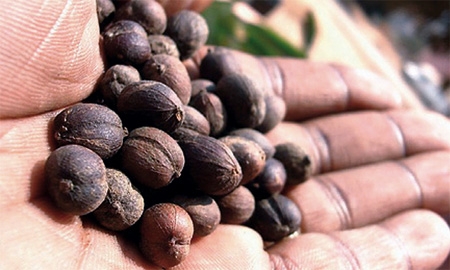Angola’s economy faces a conundrum, particularly in its agricultural sector, where nearly 85% of what is consumed must be imported. Food self-sufficiency certainly counts for a lot in terms of sustainable development, yet cash crops for export can bring in the revenues needed to further fuel the agro-industrial sector. Thus the question: should the focus be on fast results and economic gain? Or long-term benefits and well-being?
“The sectors of agriculture and fisheries have a significant importance, not only for their agro-ecological and economic potential, but also for the social role they play in the segment of the population depending on them,” says Minister of Agriculture Afonso Pedro Canga. Of the country’s 3.7 million hectares of irrigable land, only 3.5% is being utilized. This represents a huge opportunity for investors.
“Agriculture will be the basis of the economy, and industry the decisive factor.”
Agostinho Neto (1922-1979)
First President of Angola |
Experts put their money on small farmers and on public-private partnerships (PPPs) to produce enough for national consumption, and at a cost below that of imports. So far this combination has done rather well in corn, cornmeal, sweet potatoes, legumes and coffee, which also yields enough for export. Yet Angola still relies on imports of basic foodstuffs, such as wheat, rice, dairy and meat. As for cash crops, Angola has had growing success with sugarcane plantations. Besides sugar, this crop lends itself to other lucrative uses, such as ethanol.
Before independence in 1975, Angola was self-sufficient in all crops except wheat. It annually produced 220,000 tons of coffee; in 2009, just 15,000 tons were produced, but a five-year plan is in place to raise production to a quarter of the pre-war glory days. “Our goal is to become self-sufficient in food production and we have potential to do so,” says Dr. Carlos Aires da Fonseca Panzo, national director of macroeconomic management monitoring at the Ministry of Economic Coordination.

0 COMMENTS